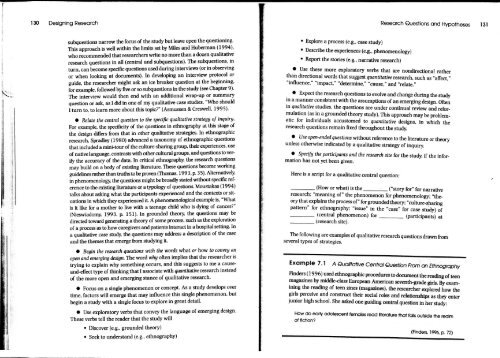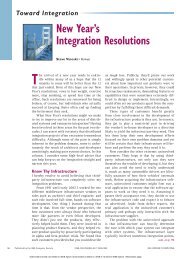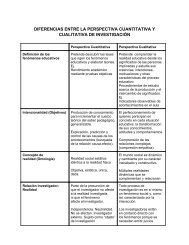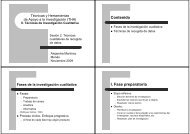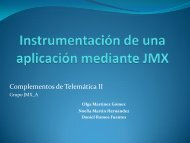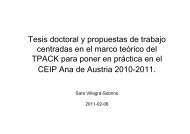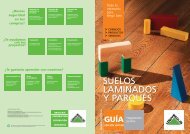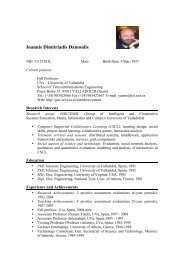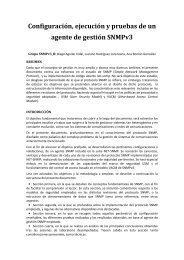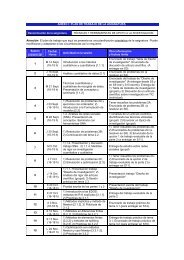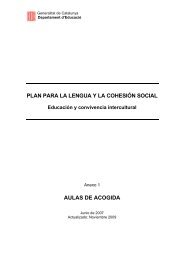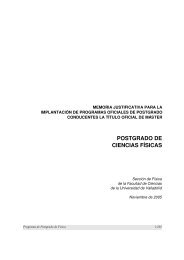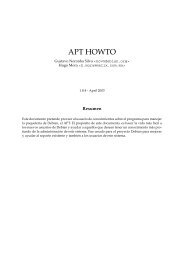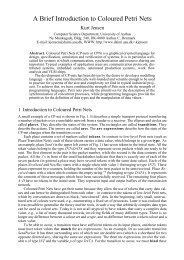Research Questions and Hypotheses
Research Questions and Hypotheses
Research Questions and Hypotheses
Create successful ePaper yourself
Turn your PDF publications into a flip-book with our unique Google optimized e-Paper software.
130 Designing <strong>Research</strong> <strong>Research</strong> <strong>Questions</strong> <strong>and</strong> <strong>Hypotheses</strong> 131<br />
subquestions narrow the focus of the study but leave open the questioning.<br />
This approach is well within the limits set by Miles <strong>and</strong> Huberman (1994),<br />
who recommended that researchers write no more than a dozen qualitative<br />
research questions in all (central <strong>and</strong> subquestions). The subquestions, in<br />
turn, can become specific questions used during interviews (or in observing<br />
or when looking at documents). In developing an interview protocol or<br />
guide, the researcher might ask an ice breaker question at the beginning,<br />
for example, followed by five or so subquestions in the study (see Chapter 9).<br />
The interview would then end with an additional wrap-up or summary<br />
question or ask, as I did in one of my qualitative case studies, "Who should<br />
I turn to, to learn more about this topic?" (Asmussen & Creswell, 1995).<br />
Relate the central question to the specific qualitative strategy of inquiry.<br />
For example, the specificity of the questions in ethnography at this stage of<br />
the design differs from that in other qualitative strategies. In ethnographic<br />
research, Spradley (1980) advanced a taxonomy of ethnographic questions<br />
that included a mini-tour of the culture-sharing group, their experiences, use<br />
of native language, ccintrasts with other cultural groups, <strong>and</strong> questions to verify<br />
the accuracy of the data. In critical ethnography, the research questions<br />
may build on a body of existing literature. These questions become working<br />
guidelines rather than truths to be proven (Thomas, 1993, p. 35). Alternatively,<br />
in phenomenology, the questions might be broadly stated without specific reference<br />
to the existing literature or a typology of questions. Moustakas (1994)<br />
talks about asking what the participants experienced <strong>and</strong> the contexts or situations<br />
in which they experienced it. A phenomenological example is, "What<br />
is it like for a mother to live with a teenage child who is dying of cancer?"<br />
(Nieswiadomy, 1993, p. 151). In grounded theory, the questions may be<br />
directed toward generating a theory of some process, such as the exploration<br />
of a process as to how caregivers <strong>and</strong> patients interact in a hospital setting. In<br />
a qualitative case study, the questions may address a description of the case<br />
<strong>and</strong> the themes that emerge from studying it.<br />
Begin the research questions with the words what or how to convey an<br />
open <strong>and</strong> emerging design. The word why often implies that the researcher is<br />
trying to explain why something occurs, <strong>and</strong> this suggests to me a cause<strong>and</strong>-effect<br />
type of thinking that I associate with quantitative research instead<br />
of the more open <strong>and</strong> emerging stance of qualitative research.<br />
Focus on a single phenomenon or concept. As a study develops over<br />
time, factors will emerge that may influence this single phenomenon, but<br />
begin a study with a single focus to explore in great detail.<br />
Use exploratory verbs that convey the language of emerging design.<br />
These verbs tell the reader that the study will<br />
Discover (e.g., grounded theory)<br />
Seek to underst<strong>and</strong> (e.g., ethnography)<br />
Explore a process (e.g., case study)<br />
Describe the experiences (e.g., phenomenology)<br />
Report the stories (e.g., narrative research)<br />
Use these more exploratory verbs that are nondirectional rather<br />
than directional words that suggest quantitative research, such as "affect,"<br />
"influence," "impact," "determine," "cause," <strong>and</strong> "relate."<br />
Expect the research questions to evolve <strong>and</strong> change during the study<br />
in a manner consistent with the assumptions of an emerging design. Often<br />
in qualitative studies, the questions are under continual review <strong>and</strong> reformulation<br />
(as in a grounded theory study). This approach may be problematic<br />
for individuals accustomed to quantitative designs, in which the<br />
research questions remain fixed throughout the study.<br />
Use open-ended questions without reference to the literature or theory<br />
unless otherwise indicated by a qualitative strategy of inquiry.<br />
Specify the participants <strong>and</strong> the research site for the study, if the information<br />
has not yet been given.<br />
Here is a script for a qualitative central question:<br />
(How or what) is the ("story for" for narrative<br />
research; "meaning of" the phenomenon for phenomenology; "theory<br />
that explains the process of" for grounded theory; "culture-sharing<br />
pattern" for ethnography; "issue" in the "case" for case study) of<br />
(central phenomenon) for (participants) at<br />
(research site).<br />
The following are examples of qualitative research questions drawn from<br />
severa] types of strategies.<br />
Example 7.1 A Qualitative Central Question From an Ethnography<br />
Finders (1996) used ethnographic procedures to document the reading of teen<br />
magazines by middle-class European American seventh-grade girls. By examining<br />
the reading of teen zines (magazines), the researcher explored how the<br />
girls perceive <strong>and</strong> construct their social roles <strong>and</strong> relationships as they enter<br />
junior high school. She asked one guiding central question in her study:<br />
How do early adolescent females read Ilterature that falls outside the realm<br />
of fiction?<br />
(Finders, 1996, p. 72)


